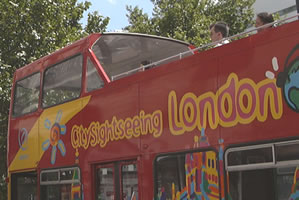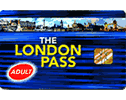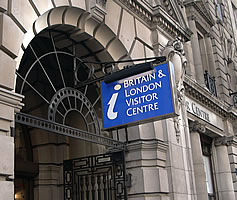

|
|
Study, work or travel in the UK. British
culture and life.
|
|
||
|
|
|
|
||
 |
||||
|
|
|
|
||
 |
||||
|
Travel
/ UK
|
||||
|
Organise a holiday within the UK
|
||||
|
Sections:
|
Introduction |
 |
| Planning travel | ||
| Places to visit | ||
| Events | ||
| Tourist offices | ||
| Guidebooks / maps | ||
| National holidays | ||
| Holidays with children | ||
| Disabled visitors | ||
| Links | ||
|
Related pages:
|
Accommodation (find somewhere to stay while travelling) | |
| Transport (plan how you will travel) | ||
| Europe (travel to Europe from the UK) |
 A London sightseeing bus |
This section contains information about finding tourist
information or places to stay. The transport section contains useful information
about travelling in London (Travel/Transport/London),
travelling around the UK by train (Travel/Transport/Train),
travelling by coach (Travel/Transport/Coach)
or travelling by car (Travel/Transport/Car).
|
Some special travel passes have to be bought before arriving in the UK.
The Foreign & Commonwealth Office (FCO) provide information on British visa
requirements for visitors/tourists at the UK Visas site: http://www.ukvisas.gov.uk.
Choose Application forms from the top menu, scroll down the page to the
Guidance Notes section and then click on Visitors (INF 2).
 |
London
Pass A pass (for between 1 and 7 days) giving entry to attractions in London and travel on public transport, plus a guidebook and discount offers. Ideal for energetic tourists. A similar pass is available for York |
The cheapest type of travel is to make a day trip. Bus or train tickets are
often cheaper if you return on the same day, and you do not have to pay extra
for accommodation. To find interesting places to visit or special events in
your area, visit the websites of your tourist board and visit your nearest Tourist
Information Centre (for details of these, see below).
Local bus or coach companies may organise day-trips.
Travelling as a part of a group is often cheaper than travelling by yourself.
If you are studying at a language school or university, find out if they organise
trips which you can join.
International Friends organise tours in the UK which start in London
or Cambridge: Travel/Tours/Company/InternationalFriends
In London, international students can join the Travel Club run by International
Student House: http://www.ish.org.uk/ishevents/travelclub.html.
There is a useful set of links to British attractions, organised by region,
at: http://www.enjoybritain.com
 |
The National Trust look after some beautiful countryside
and houses: http://www.nationaltrust.org.uk See also the National Trust for Scotland: http://www.nts.org.uk |
 |
The following organisations run many of the historic sites
in the UK: England: English Heritage: http://www.english-heritage.org.uk (in 2003: 25% discount on entry charges for students with ISIC cards) Scotland: Historic Scotland: http://www.historic-scotland.gov.uk. Wales: Cadw: http://www.cadw.wales.gov.uk |
 |
If you like visiting gardens and flower shows, see the Royal Horticultural
Society's site: http://www.rhs.org.uk |
There are many areas of beautiful landscapes in the UK (forests, fields, hills,
mountains, lakes, rivers and coastlines). For England and Wales, see the website
of the Council for National Parks: http://www.cnp.org.uk,
for Scotland see the Scottish Natural Heritage site: http://www.snh.org.uk.
If you are interested in travelling to the seaside, information about many UK
beaches is contained in the Good Beach Guide: http://www.goodbeachguide.co.uk.
There are some sandy beaches, but many are shingle (a mixture of sand and stones)
or pebbles (small stones). Swimming is possible in summer, but the water is
quite cold and the tides can be strong.
 |
Coast
& Countryside Author: James Parry Publisher: National Trust Date: April 2000 |
 |
The
National Trust Handbook: 2003 Publisher: The National Trust Date: March 2003 |
 |
"Time
Out" Weekend Breaks from London |
 |
The
National Trust Handbook: 2004 Publisher: The National Trust Date: March 2004 |
 |
If you are in London and want to travel in the UK, consider visiting the Britain & London Visitor Centre at 1 Regent Street (in the southern part of the road, also known as Lower Regent Street; leave exit 3 at Piccadilly Circus underground station; map), or the Scottish Tourist Board at 19 Cockspur Street (nearest tube: Charing Cross or Piccadilly Circus; map). |
Note that the busiest times for travel are in the summer (July and August)
and around the times of national holidays (known as bank holidays in
the UK). At these busy times there may be special timetables or restrictions
on the sale of cheap tickets. It may be wise to book early and to get a seat
reservation. On bank holidays, buses and trains usually run a Sunday service,
but there may be no service at all on Christmas Day. The regular UK bank holidays
are as follows (when these days occur on a Saturday or Sunday, the holiday is
moved to the start of the next week):
New Year's Day: 1 January (2 January is also a holiday in Scotland)
Good Friday / Easter Monday: Friday (Good Friday) and the following
Monday (Easter Monday), sometime between late March and the end of April
Mayday Bank Holiday: the first Monday in May
May Bank Holiday: the last Monday in May
Summer Bank Holiday: the last Monday in August (the first Monday in Scotland)
Christmas Day / Boxing Day: 25 December / 26 December
Be careful also at times of special festivals. For example, transport and accommodation
in Edinburgh is very busy around the times of the Edinburgh International Festival
(in August) and for the New Year's Hogmanay celebrations (31st December and
1st January).
Back to top
Below are some guides which will help you to plan holidays or days out with
children:
 |
London
for Children Guide Publisher: Time Out Magazine Date: May 2002 |
 |
Short
Breaks from London (Take the Kids) Author: Joseph Fullman Publisher: Cadogan Guides Date: March 2002 |
 |
Take
the Kids: England Author: Joseph Fullman Publisher: Cadogan Guides Date: July 2001 |
The
Family Welcome Guide Authors: Jill Foster, Malcolm Hamer Publisher: Poolside Publishing Date: December 1999 |
 |
If you are disabled, you can enjoy visiting the UK, but
it may be easier if you organise your accommodation and visits in advance.
New buildings and transport are often designed to be accessible for people
who are in a wheelchair, blind or have some other disability, and old
buildings are being adapted where that is possible. Some large parks and
gardens provide special vehicles to enable disabled people to enjoy them.
|
Holiday Care is a charity which produces holiday and travel information
to people with disabilities: http://www.holidaycare.org.uk.
They produce a publication called Accessible Britain which lists accommodation
and tourist attractions which are accessible for people using a wheelchair (this
can be ordered from their website, and sent to any country). Information for
certain regions of the UK is available on their website (for a list of their
publications, see: http://www.holidaycare.org.uk/pubs.asp)
All of London's black cabs (licensed taxis) can carry a person in a wheelchair
and provide ramps. This can be a conveneint way to travel from Heathrow Airport
to central London, or to travel around London. See: Travel/Transport/Taxi.
Further information about travelling in London is shown in the page: Travel/Transport/London.
For the diary of Akemi, a Japanese lady in a whelchair who visited London as
a tourist, see: Ideas/Diary/Akemi.
The National Trust (which looks after many historic houses and gardens
which are open to visitors) produce a brochure each year called "Information
for Visitors with Disabilities". Some properties have a powered four-wheeled
vehicle which can be used free (you should telephone the property before you
go there to book this). For information about the National Trust, see: Travel/UK.
Four-wheeled vehicles are also available in some parks.
 |
Toilets for disabled people are available in many locations, but are sometimes locked for security reasons. Keys are provided under the National Key Scheme (NKS); you may wish to purchase a key from the RADAR website: http://www.radar.org.uk. |
| Access
in London Author: Gordon Couch Publisher: Bloomsbury Date: June 2003 |
|
|
|